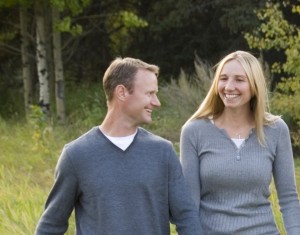We know people with friends live longer, healthier and happier lives.Friends keep us mentally active, socially wired in and physically engaged in sports. They teach us how to use the equipment at the gym, play the latest video game and hit a better chip shot. They point us in the direction of the next Grammy winning CD, Pulitzer-winning novel and best locally brewed beer. We watch how our friends handle the emotional side of their lives: How they carry their babies, raise their teen-age daughters and treat their significant others. Do they surprise their loved ones on big birthdays? Do they open the door for them? And what do they say to them when they disagree? By having friends and observing their behaviors, there is much to learn.
 Friends also monitor our health[ii] and encourage better health care. Many of us have friendships where psychotherapy, colonoscopies, exercise, annual check-ups, weight watching and smoking cessation are encouraged. We accompany friends to the doctors and nurse them back to health with vitamins, emails and home cooked meals. These are the benefits that individual friendships bear; these benefits also apply to couples!
Friends also monitor our health[ii] and encourage better health care. Many of us have friendships where psychotherapy, colonoscopies, exercise, annual check-ups, weight watching and smoking cessation are encouraged. We accompany friends to the doctors and nurse them back to health with vitamins, emails and home cooked meals. These are the benefits that individual friendships bear; these benefits also apply to couples!
Couples who get along happily with each other have much to gain and we believe that couples that are friends also have much to gain. The U.S. Department of Health and Human Service’s website for the Healthy Marriage Initiative indicates that men who are happily married, as compared to those unhappily married, are physically and emotionally healthier and live longer. Women who are happily married are also physically and emotionally healthier than those who are unhappily married.[iii]
Here is the connection – we believe that couples that get along with other couples reap all the benefits of individual friendships and good partnerships. Being friends with another couple allows you to see your partner in a better light while you are having fun and making a significant connection. It is value-added to your relationship as well as to theirs. You each learn from each other.
But, surprisingly, many couples do not have a language to begin to discuss how their friendships operate when they are together. Our book, Two Plus Two (Routledge, 2012), provides a starting point for this discussion. It will help couples:
1. Figure out what type of couple they are
2. Figure how they want to spend time when they are with other couples
With time so tight these days, managing time when socializing is extremely important. How does a couple balance time alone with just each other, with family, with their individual friends, and with another couple? This book offers a starting point through interviews with 123 couples who were interviewed together, another 122 partners in couples where only one partner was interviewed, and 58 divorced people who talk about how their friendships were affected by their divorce. A quiz to help couples think about their relationships is included.
Want better health? Think about your friendships…
 Written by Geoffrey L. Greif, Kathleen Holtz Deal
Written by Geoffrey L. Greif, Kathleen Holtz Deal
Geoffrey L. Greif, DSW, LCSW-C is Professor at the University of Maryland School of Social Work. He is the author of books and articles related to family issues and men’s and women’s relationships. A previous book of his, Buddy System: Understanding Male Friendships, was published in 2009. In 2010 he received the University of Maryland Board of Regents faculty award for teaching.
Kathleen Holtz Deal, PhD, LCSW is Associate Professor at the University of Maryland School of Social Work. She is the author of articles and book chapters related to supervision and professional development. In 2011 she received the award as outstanding teacher at the University of Maryland Baltimore campus.
___________________________________________________
[i] Many studies have documented this. See, e.g. Berkman & Syme (1979) and Winefeld et al. (1992).
[ii] Christiakis & Fowler (2007).
[iii]Note, as reporter Tara Parker-Pope points out, that these benefits accrue to people in happy marriages. Unhappy marriages hurt health and, Parker-Pope (2010) reports from her review of research that divorced people are worse off health-wise than never-marrieds. Being in a good marriage (or a significant partnership we surmise) also benefits health. Slatcher (2010) describes the benefits of marriage further.




Comments are closed.